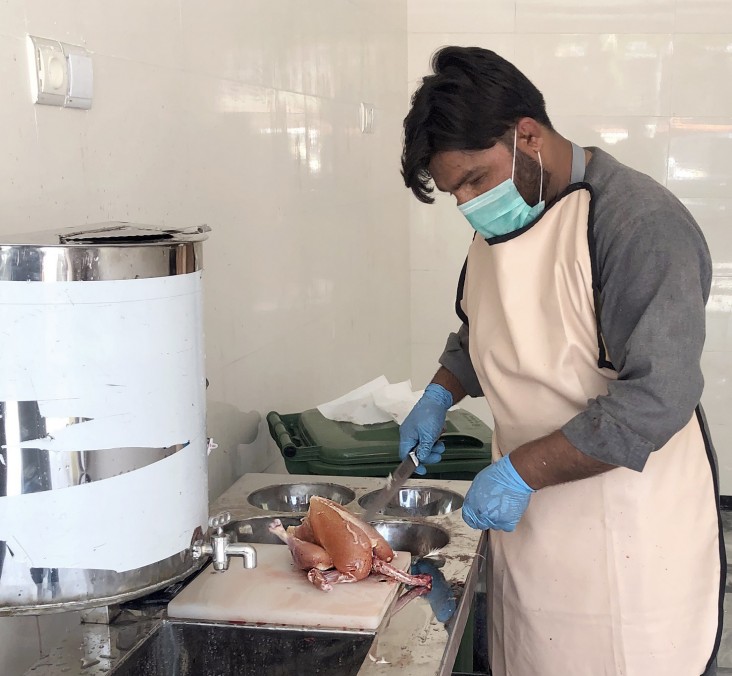Speeches Shim

In Afghanistan, people buy fresh poultry meat directly from butchers. One can easily spot a traditional butcher shop in the streets of Kabul with clucking chickens kept in cages at the front. Customers prefer clean shops to avoid contaminated food, but it is a challenge to find a clean butcher shop, even in Kabul. Butchers rarely pay attention to hygiene, putting consumers’ health at risk - and thus losing customers and income. Often without access to clean water in their shops, butchers clean their hands and knives in buckets full of chicken feathers.
That was what Mohammad Ashraf thought was normal - until June this year. It was then that this poultry butcher from Pul-e Sokhrkh area of Kabul took a USAID-supported training in poultry food safety and hygiene. “I learned so many useful things about safety and hygiene from the training!” he says. It was on-the-job training designed specifically to improve slaughtering technology and to introduce necessary food safety practices. The five butcher trainees also received new slaughtering toolkits.
Only a day after the training, Mohammad Ashraf started renovating his shop by tiling it top to bottom to make it easy to wash the walls at least once per day, and he applied all the hygienic standards he learned from the training. Then, he replaced his old equipment with the new set he received from his trainers and he immediately noticed an influx of customers at his shop. Happy to deal with the rising demand for poultry meat, Mohammad Ashraf started ordering more broiler chickens from farmers in neighboring areas.
“Now that my butcher shop is clean my customers are more satisfied. I sell about 50 chickens per day, and that’s 20 chickens more than I used to sell daily in my old setup. I realize how important it is to have a glistening shop to attract customer attention. I probably have the cleanest butcher shop in Kabul now,” said Mohammad Ashraf.
USAID will soon duplicate the training in food safety and hygienic practices for 55 more poultry butchers in Kabul, Jalalabad, and Ghazni. This training affects farmers, butchers, and consumers. The consumers benefit from healthier meat and are protected from cross-contamination that can occur during poultry slaughter and meat processing. The improved hygiene increases the butchers’ sales, which turns into increased demand for more broiler chickens from farmers. By teaching trainees to properly dispose of hazardous waste, the environment is also spared from contamination.

Comment
Make a general inquiry or suggest an improvement.